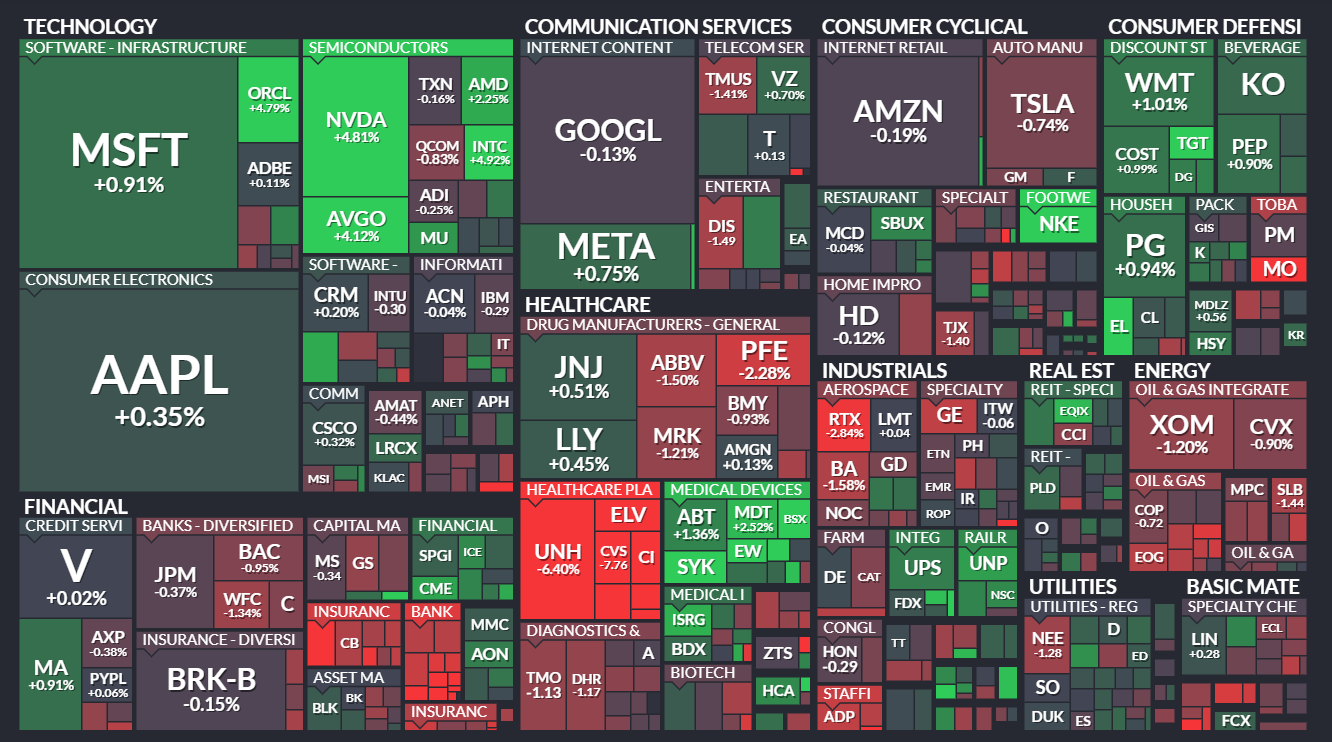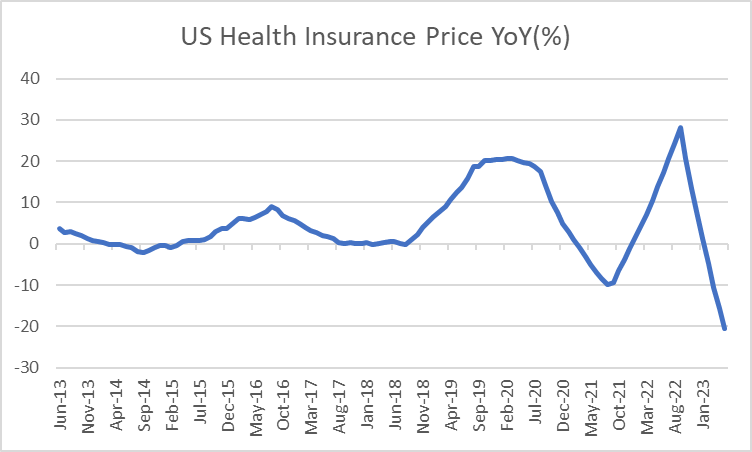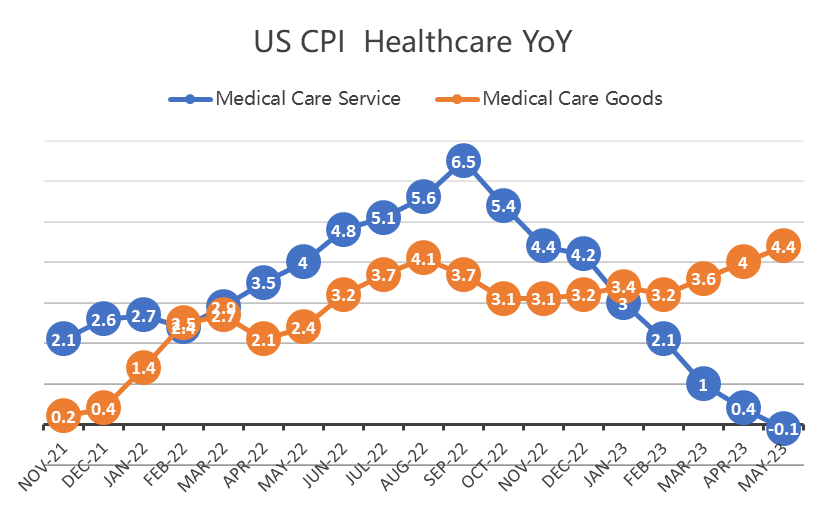On June 14th, despite the FOMC meeting during the trading session, the market reaction was not as significant as expected, considering the anticipation of "skipping the rate hike in June but adopting a hawkish tone."
However, there was a collective decline in one sector (in stark contrast to the glory of the chip industry), which was healthcare insurance.
The main reason was that the CEO of $UnitedHealth(UNH)$ stated during an $Goldman Sachs(GS)$ conference that the healthcare insurance costs this year would be at the upper limit of expectations, or even surpass them.
This implies that healthcare insurance companies will experience increased expenses, which will impact their profit margins. As a result, several related companies, including $THE CIGNA GROUP(CI)$ $Elevance Health(ELV)$ $Humana(HUM)$ $Alignment Healthcare, Inc.(ALHC)$ and the healthcare insurance pharmacy $CVS Health(CVS)$ , experienced a significant decline.
According to the CEO of UNH, the increase in medical demand, including surgeries, following COVID-19 has led to additional costs.
The percentage of premium expenditures allocated to medical expenses is expected to reach or slightly exceed 82.6% of the annual outlook provided by UnitedHealth due to the impact of COVID-19.
This situation is quite intriguing, and we need to consider it from various perspectives to determine if it aligns with what the CEO mentioned.
Firstly, does COVID-19 indeed have long-term effects, and how significant are these effects?
From my personal experience of having had the virus, it does have an impact on physical well-being, but it is challenging to quantify the extent. However, for older individuals, those with weaker immune systems, or underlying health conditions, it is highly likely that they require more medical services. Otherwise, healthcare insurance prices for 2022 would not have increased so substantially. Western media generally does not report on the impact of long-term COVID-19 effects.
On the one hand, this significantly influences the economy and public sentiment, and on the other hand, it conflicts with their propaganda, as the freedom of the people surpasses everything else. The governments and many citizens in Europe and America prefer to downplay its effects. In this case, UNH can only silently bear the consequences and dutifully reimburse the public.
Secondly, are the additional costs for medical services one-time expenses?
This is the primary factor investors consider. Are more people in need of medical services? Is the frequency of medical service utilization increasing? These aspects directly affect UNH's costs. If COVID-19's impact on public health is long-term, does it imply that the cost of medical services will remain high in the long run? Therefore, the actuaries of these insurance companies will need to modify their models.
Unless healthcare costs increase, the long-term profit margins of healthcare insurance companies will be affected.
The following chart illustrates the changes in healthcare insurance prices in the US CPI components, indicating a surge in 2022 and a current retracement in 2023.
On the other hand, the prices of medical goods have been steadily increasing, while the growth rate of medical services might not be as rapid due to the bargaining power of insurance companies.
However, currently, healthcare insurance expenses cannot keep up with the rising prices of medical services and goods, which is undoubtedly not good news for healthcare insurance companies. Therefore, if healthcare insurance companies can successfully raise prices without affecting user purchases, that would be the true way to overcome this difficulty.
In the secondary market, these large medical insurance companies are often favored by institutions . Therefore, the large-scale selling on June 14th was all institutional behavior, indicating that many institutions have sensed the danger.
However, institutional holdings are not something that can change overnight. While they reduce their positions in this industry, they also need to find similar alternatives; otherwise, they will passively increase the proportion of other positions, thus increasing risk exposure.
So, what kind of companies can replace medical insurance companies?
Since your CEO mentioned that there is an increase in medical services (including surgeries), wouldn't companies directly providing such medical services be a direct advantage? Companies with a large network of outpatient ambulatory surgery centers (ASC) have now encountered opportunities. For example, $Surgery Partners(SGRY)$ $Tenet Healthcare(THC)$ $Tenet Healthcare(THC)$ $HCA Holdings Inc(HCA)$ .
They were the winners yesterday.



Comments
Medical service companies benefit.
Insurance prices surge in 2022.
Long-term COVID effects impact costs.
UNH's medical demand increases costs.